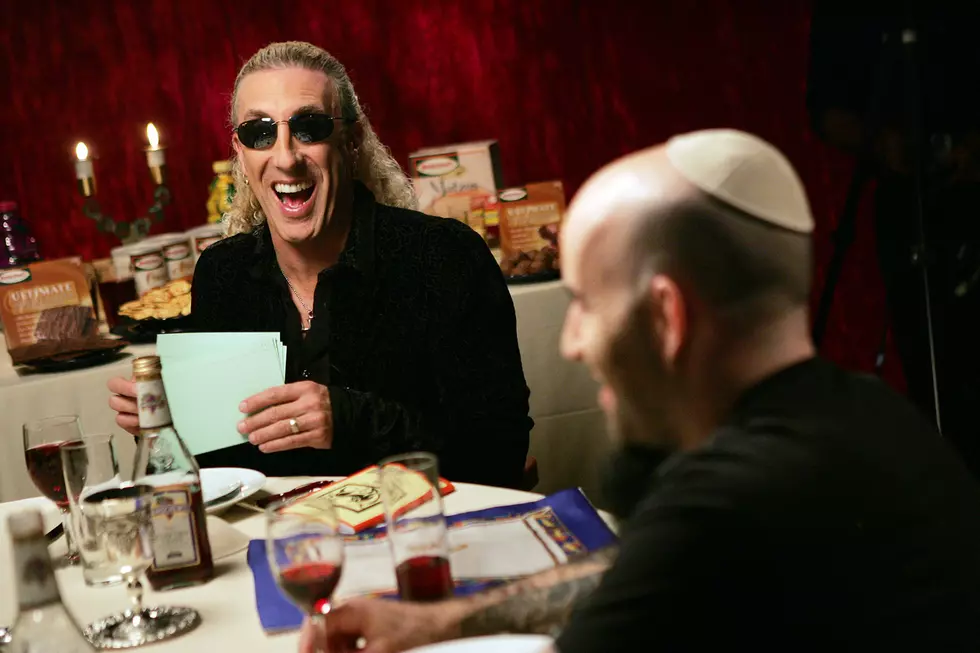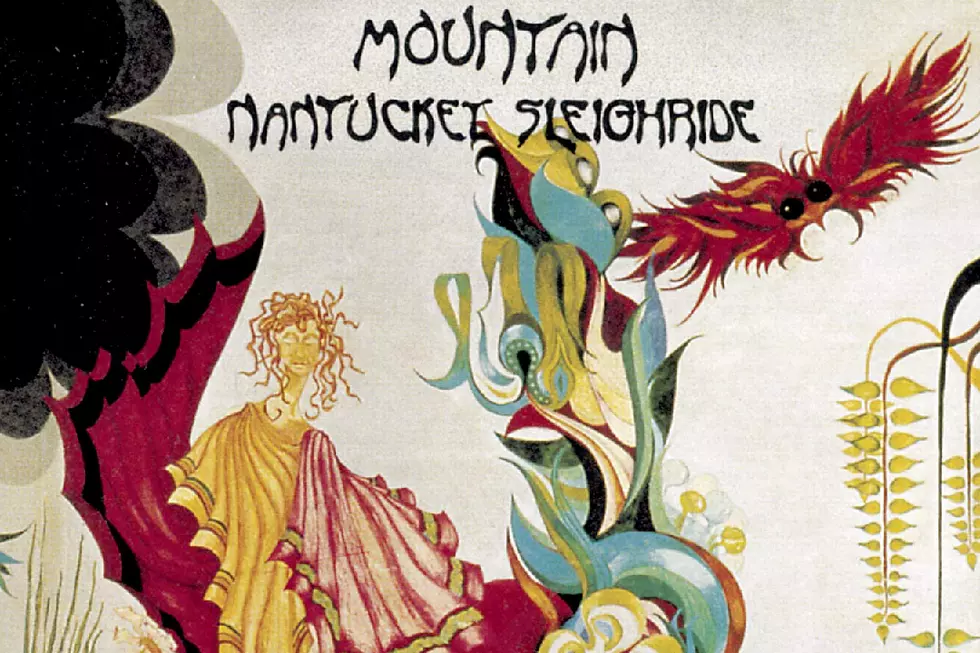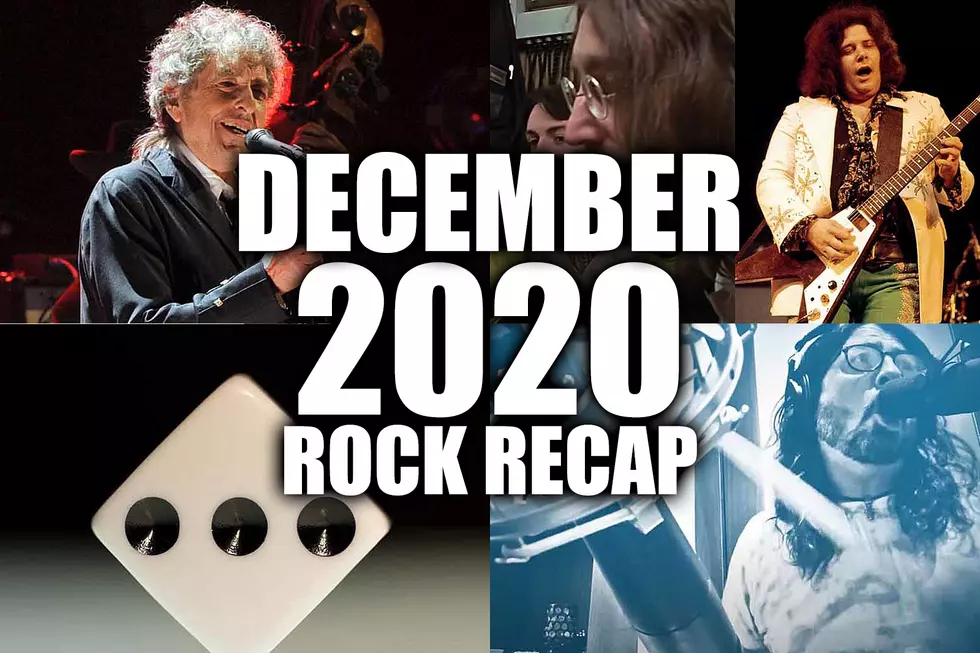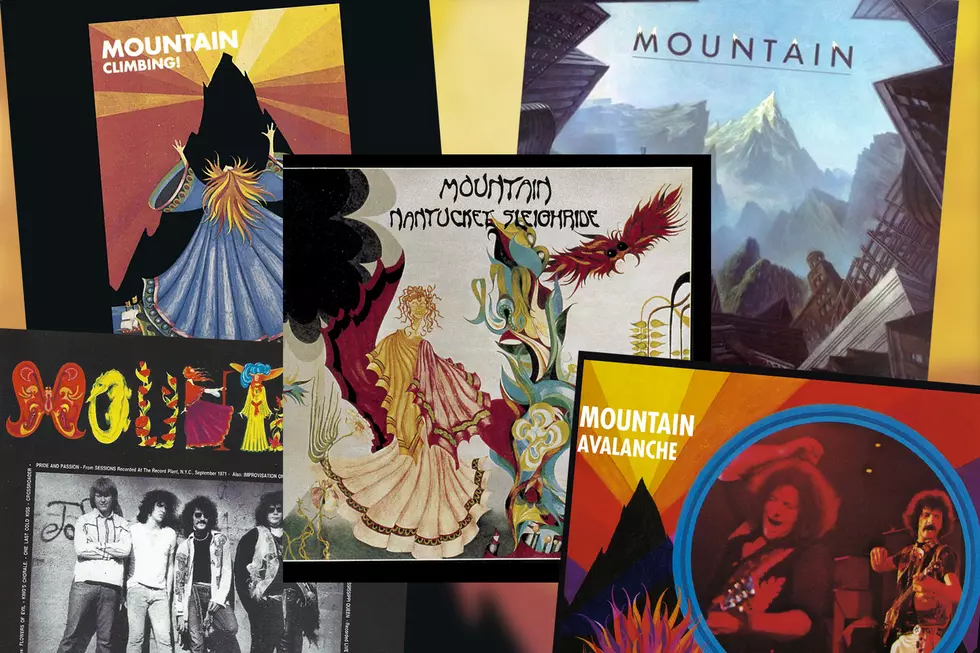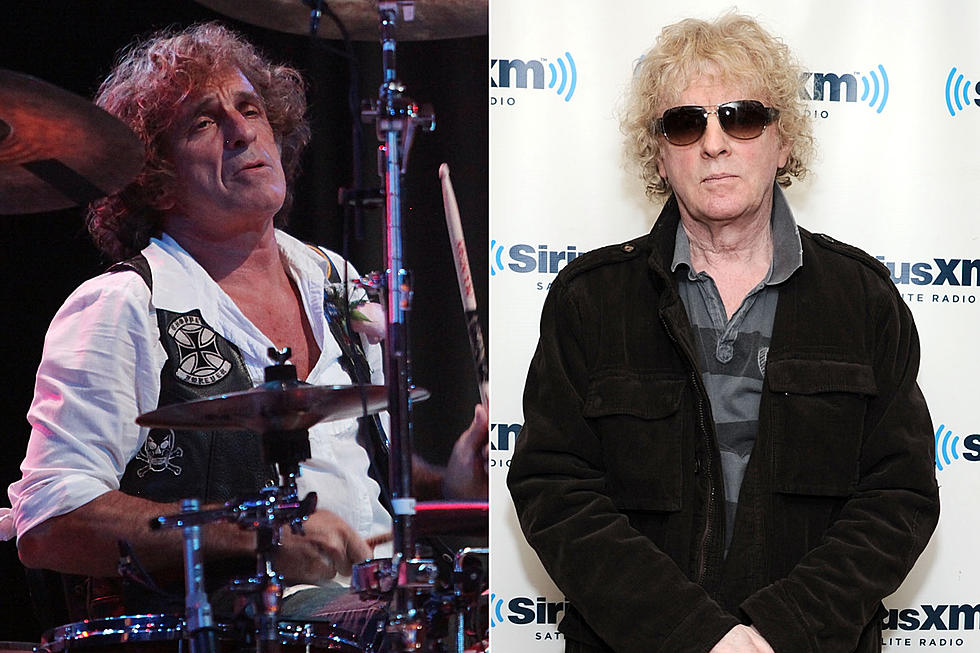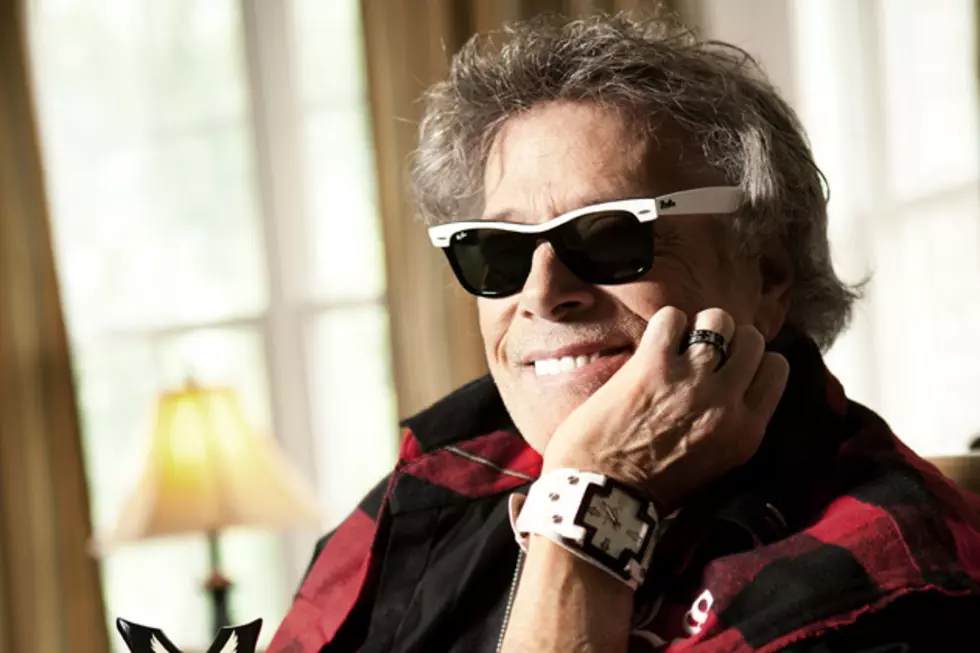
Leslie West on His New Album, Mountain’s Legacy and Overcoming Obstacles
Guitarist Leslie West has been around the block more than a few times. From his glory days with Mountain through the powerhouse trio West, Bruce and Lang, West helped create the template for loud hard-rock guitar bands. Taking cues from Cream and the Jimi Hendrix Experience, Mountain were the right band at the right time as the '60s turned into the 70s. They played Woodstock and became stars.
West hasn't stopped making music since then. In 2011, a portion of his right leg was amputated after some complications surfaced caused by diabetes. That same year he released 'Unusual Suspects'; his new album, 'Still Climbing,' follows a similar path. In this exclusive interview, he opens up about his health, guitar playing and legacy.
How are you feeling these days?
Good as you can, you know.
You've been through a lot these past couple years.
What are you gonna do?
You sound great on the new album. It's got a real crisp sound to it. How did you arrive at that?
My engineer and co-producer Mike Goldberg did it with me. My amps are what you hear. There's a little delay and reverb on it, but there's no EQ on my guitar -- that's it. I use Black Star amps, no distortion pedals or overdrive, just the pure sound of the amp. I used to use a few pedals, but now that I only have one leg, it's easier for me to just click on the clean channel or dirty channel on the amp. We started working on it a year ago, and we sent it to Mike Frasier in Vancouver to mix it. He's done Metallica, Joe Satrtiani and AC/DC. It was great giving it to someone with a fresh pair of ears, saying, 'Here's the album ... mix it!' And we didn't have to make many changes to his mix, maybe a few things here and there. I think maybe we found a great way to record.
It can be really good to get that fresh set of ears at that point.
Well yeah, you're working on it for that long, and after hearing the songs over and over and over again, how can you be objective really? And he's so great, Mike Frasier. Plus, it was recorded really well with Mike Goldberg, who did an incredible job, and he also played the drums. It was easy for me to write the songs with him in the studio, putting it together. I took my time.
And the sound is big, full and real, unlike so many metal-style productions, which can be too processed sounding.
I really never played heavy metal. A lot of heavy-metal groups have more pedals going on, and it thins out the sound rather than thickening the sound.
Some of the songs seem somewhat autobiographical.
What are you speaking right from the get go about? 'Dying Since the Day I Was Born'?
Well, I didn't want to go there right away, but ...
As soon as we're born man ... you know, it's like you buy a new car, you drive it off the lot, as soon as you drive away, it depreciates 25 percent. But the song itself, my wife Jenny, she would send me lyrics on my iPad, and I'd work on the song, maybe I needed a lyric. After I finished that track, I sent it to Slash, I wanted his opinion, because I really respect his opinion, and he wrote me back and said, 'You can't get any heavier than that, man!' It is a heavy track. I was going for that, but not just a bunch of bulls---. And another one, 'Tales of Woe,' I guess you could say, the past two years ... I don't need anybody's pity, but I went through a lot of s--- and I thought it was a good way of expressing it.
There's a variety of interesting song choices on there, as well as those you wrote.
There's a song on there called 'Fade Into You'. I heard that on the TV show 'Nashville,' and I thought the song was exceptional. I saw the music supervisor and producer was T Bone Burnett. So I tried to do the song. Started it out acoustic, then the band comes in at the middle, big as a brick s---house, which is what I wanted it to be. I wish I wrote the song, but when you pick a song that not too many people know, it can almost end up sounding like your song.
Of course. There are often times where another artist ends up with a better interpretation of the song than even the writer.
Well yeah, that was the case with 'When a Man Loves a Woman.' Jonny Lang played and sang with me. That was the first track I put down for this. I hadn't written any songs yet, but I put that down, and I knew he was coming to New Jersey to do a show with Buddy Guy last year. He had a day off, and sure enough, he said yeah, he'd love to. We sat about a foot away from each other in the control room playing lead. The amps were out in the studio. It was a real, true duet. It wasn't like I sent somebody the files.
Your styles seem to complement each other.
I think between the two of us, my style and his style, they work together.
As does the combination of you and Dee Snider on 'Feeling Good.'
I've known him for 40 years, and I knew he could sing besides his screaming and stuff he does with Twisted Sister. He can sing, man. I love the guy to death and I was thrilled that he got to do this. As well as Johnny Winter. I toured with Johnny last year, and his manager, Paul Nelson, said, "Johnny's doing an album -- would you play a cut on his?' I said of course. Johnny's slide playing on 'Busted, Disgusted or Dead' -- you can really hear him. He plays the middle solo after me. They work together. I picked guys that I would love to have play on the album, rather than, Let's see if we can get this guy who I never even met.
What led to you rerecording 'Long Red'?
That was an easy decision. First off, I do it live, but if you look up in Wikipedia, 'Long Red' is one of the most sampled songs in the history of hip-hop. Did you see the map? Go look it up -- you won't believe it. I mean besides Jay Z and Kanye West and Common, Lana Del Rey, her album 'Born to Die.' 'Born to Die' is the song she used the sample in. But they didn't get clearance yet. My lawyer's right on that.
So you'll have a big paycheck coming.
Oh, well, you know ... I can assure you when I wrote it in 1969, I had no idea what hip-hop was.
What did you think of Mott the Hoople's version?
The funny thing is, the idea came to me from one of Traffic's songs, 'You Can All Join In.' That's where I got the idea to write those kind of chords. So yeah, the more things change, the more they stay the same.
Going back even further, recordings of your first band, the Vagrants, just got a proper reissue. What are your memories of those days?
We were just learning how to play. You know, we dug up some stuff. We were a cover band basically, we didn't have any original stuff, but we had a great show -- way back with strobes and fog machines and lights. As a local group, we did pretty good with all that. Eventually, we just couldn't record an album, and Felix Papalardi was working with us in the studio and he said, "You know, I don't have enough time to start writing songs with you. Maybe the best thing you can do is to break up and do something on your own." I did, and that's how Mountain got started. But even that didn't work out, so Felix's partner, Bud Prager, said, "Felix, why don't you go in an play bass?" And I had to do a con job to get him to join the band. Then we did Woodstock, then finally Corky Lang joined, I think after Woodstock. I've been lucky -- I was only in a couple of groups: Vagrants, Mountain, West, Bruce and Lang. I know guys that are in, like, 400 groups.
It's quality not quantity.
Well, yeah. And luck.
I always thought Mountain were kind of underrated. Everyone just thinks of the "heavy," but there was a lot more variety to those recordings that you were given credit for.
'Nantucket Sleighride' was really a difficult song to learn, and I used to hate it, because it was just too difficult. I'm used to playing three or four blues progressions. But it became the theme song of this gigantic TV show in England called 'Weekend World,' which was on every Sunday -- like their '60 Minutes' political news show. And when we first played this big festival there, and 100,000 people started going crazy when we started playing the beginning of 'Nantucket Sleighride,' I couldn't understand how they knew this! Sure enough, I found out. A lot of people know 'Mississippi Queen,' but I thought that was a really good song that didn't have anything to do with normal rock 'n' roll. Much like Procol Harum's 'Whiter Shade of Pale.' They didn't sound like your regular rock group.
How did you come to do those sessions with the Who?
Their company, Track, were our agents in England. And Kit Lambert, one of their managers, called me up and said, 'Would you like to record with the Who?' I said, "Well, they have a guitar player." And he said, "Yeah, but Pete would like to record without overdubbing." So we recorded at the Record Plant. It was far out, hearing them play 'Won't Get Fooled Again' on this first synthesizer thing. You should've seen what this thing looked like. And then, for some reason, some of the stuff didn't record well, because we were doing it straight away, no overdubs. So they went back to England, and Glynn Johns ended up producing 'Who's Next.' But they re-released the 'Who's Next' box set a few years ago, and I got the platinum record on my wall for it ... finally got released. It was really freaky, man, me playing with the Who!
They're noticeably different versions.
Yeah, there's one song on there, a Marvin Gaye song called 'Baby Don't You Do It,' and you can hear me playing lead on one side and Pete playing rhythm on the other side. We had a lot of fun.
Do you feel snubbed by the Rock 'n' Roll Hall of Fame?
No, I guess I'm not good enough. Who knows, man? One day, when I'm dead maybe, but what are you gonna do? That wasn't my goal in life -- to be in some hall of fame. I'm happy to be number 66 in Rolling Stone's Top 100 Guitar Players. In fact, when I got the issue, I saw Slash was 65, so I called him up and said, "Slash, you're number 65." And he said, "I'm lucky to be on any list."
Are you doing any live shows for the album?
I think I'm gonna do New York. We're trying to figure out how I can do this. There are no tour buses that handle handicap and wheel chair, and I'm not used to the prosthetic. My balance is really terrible. When I went to rehab with the prosthetic, they wanted me to put on my guitar, like you would onstage. And they put me in between parallel bars -- in case I thought I was going to fall, I could grab onto the bars -- and I could only last 40 seconds. I didn't want to have to play live and worry about, "Oh, Jesus, I'm gonna fall on my ass. I'll forget the words." So I have to sit down when I play, but what else are you gonna do? Everybody gets knocked down in life. It's how you choose to get up.
More From Ultimate Classic Rock
